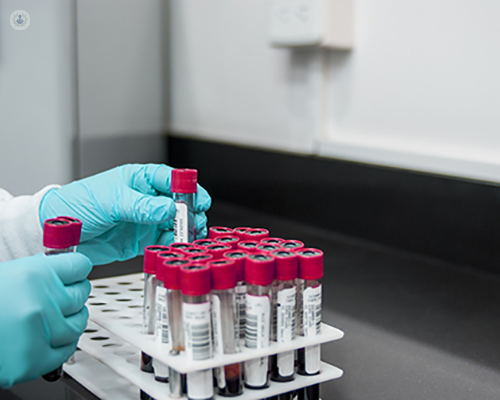Creatinine
What is being analysed?
Creatinine is a waste product produced by muscles during metabolism. When your body breaks down creatine, a substance important for muscle function, creatinine is formed. The analysis of creatinine levels in the blood and urine provides valuable insights into kidney function.

What does the result mean?
Creatinine levels in the blood and urine help assess the efficiency of the kidneys. Elevated levels may indicate impaired kidney function, while low levels could suggest a muscle-related issue.
Why conduct the analysis?
Creatinine analysis is crucial for evaluating kidney health. It aids in identifying conditions such as chronic kidney disease, acute kidney injury, or other disorders affecting renal function.
When to perform the analysis?
Creatinine analysis is typically included in routine blood tests. Additionally, it may be ordered if there are symptoms or risk factors associated with kidney dysfunction, such as high blood pressure or diabetes.
What sample is required?
The analysis requires a blood sample, usually drawn from a vein in the arm, or a urine sample for creatinine clearance tests.
Is any prior preparation necessary?
For a blood test, no special preparation is usually required. However, it's essential to inform your healthcare provider about any medications or supplements you are taking, as they might influence the results.
How is it used?
Creatinine levels are used to estimate the glomerular filtration rate (GFR), a key indicator of kidney function. The results help healthcare professionals diagnose and monitor kidney diseases.
What are the normal values?
|
Creatinine Level (mg/dL) |
Interpretation |
|
Below Normal |
Potential muscle issues |
|
Normal |
Healthy kidney function |
|
Slightly Elevated |
Early kidney dysfunction |
|
Moderately Elevated |
Established kidney disease |
|
Significantly Elevated |
Severe kidney impairment |
What does having altered values mean?
Elevated levels: May indicate kidney dysfunction, dehydration, or certain medications.
Low levels: Could be associated with muscle problems or a low protein diet.